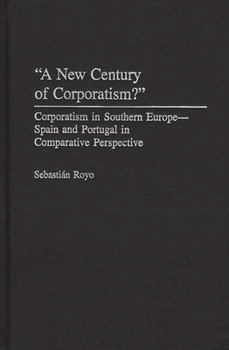A New Century of Corporatism? Corporatism in Southern Europe--Spain and Portugal in Comparative Perspective
Royo examines how national-level social bargaining was established in Portugal and Spain during the last two decades, despite unpropitious institutional and structural conditions. He argues that this development was the result of the reorientation of the strategies of the social actors. With their support for these macro-economic agreements labor unions sought to participate in labor and economic reforms and avoid the implementation of unilateral policies on the part of governments, while mitigating the decline in their bargaining power at the workplace level.
In addition, Royo contends that a process of institutional learning and increasing autonomy by unions from political parties, particularly in Spain, have further enhanced social dialogue and led the social actors to conclude that previous confrontational strategies were detrimental to the interests of their constituencies and threatened their own survival. Royo claims that the emergence of new institutions to promote tripartite social bargaining in both countries resulted in the institutionalization of the bargaining process and contributed to a transformation in the pattern of industrial relations. Of particular interest to scholars and researchers involved with Iberian politics, labor, and political economy.Format:Hardcover
Language:English
ISBN:0275969584
ISBN13:9780275969585
Release Date:May 2002
Publisher:Praeger
Length:336 Pages
Weight:1.40 lbs.
Dimensions:1.2" x 6.2" x 9.5"
Customer Reviews
0 rating





